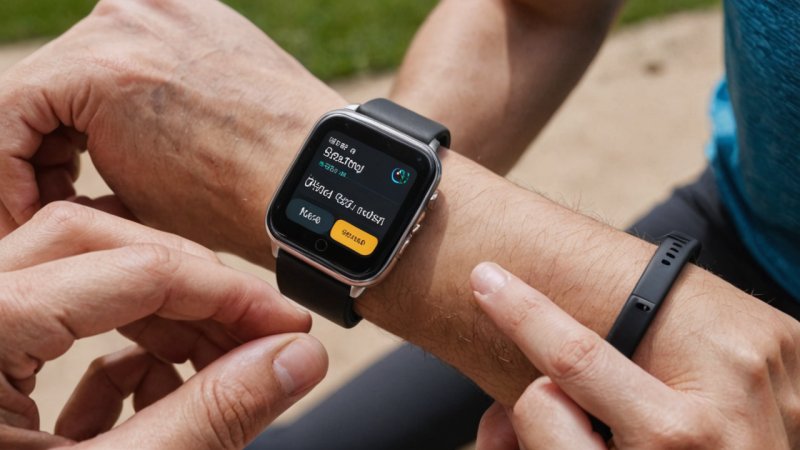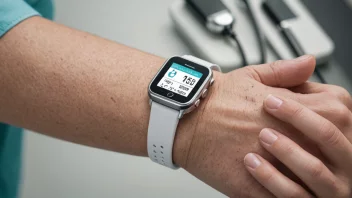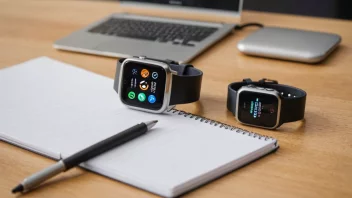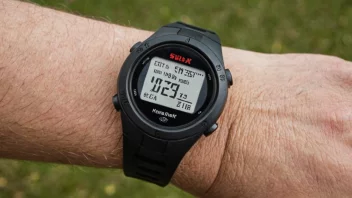In the world of sports coaching, technology has transformed the way athletes train and perform. Among the most popular gadgets are smartwatches and fitness trackers, both of which offer unique features that can significantly enhance training regimens. This article will delve into the differences between smartwatches and fitness trackers, highlighting their advantages and disadvantages to help you determine which is better suited for your coaching needs.
Overview of Smartwatches
Smartwatches are versatile devices that not only track fitness metrics but also provide a range of smart features, such as notifications, apps, and music control. With large displays and customizable interfaces, they can serve as an all-in-one solution for both communication and health monitoring.
Pros of Smartwatches
- Multifunctionality: Smartwatches offer a wide array of features, including GPS tracking, heart rate monitoring, and smartphone notifications.
- Apps: Many smartwatches support third-party apps, allowing coaches to access tailored training programs and performance analytics.
- Design: Smartwatches often come with stylish designs, making them suitable for everyday wear.
Cons of Smartwatches
- Battery Life: Many smartwatches require daily charging due to their extensive features.
- Price: Smartwatches can be significantly more expensive than fitness trackers, which may not be justifiable for all users.
- Complexity: The multitude of features can overwhelm some users, making it harder to focus on key metrics.
Overview of Fitness Trackers
Fitness trackers are designed primarily for monitoring physical activity and health metrics. They typically come with a streamlined interface focused on specific data points like steps, calories burned, and sleep quality. While they may lack the extensive features of smartwatches, they excel in their core functionality.
Pros of Fitness Trackers
- Simplicity: Fitness trackers are often easier to use, providing straightforward metrics without unnecessary distractions.
- Battery Life: Most fitness trackers have longer battery life, often lasting several days or even weeks on a single charge.
- Affordability: Generally, fitness trackers are more budget-friendly than smartwatches, making them a great option for all athletes.
Cons of Fitness Trackers
- Limited Features: Fitness trackers typically do not support apps or notifications, which may limit their usability for some users.
- Screen Size: Smaller screens can make it difficult to read detailed metrics or navigate settings effectively.
- Design: Fitness trackers are often more utilitarian in design, which may not appeal to those looking for a more fashionable accessory.
Key Differences
When comparing smartwatches and fitness trackers, several key differences stand out that can impact their effectiveness as coaching tools.
Functionality
Smartwatches offer a broader range of functions, combining health tracking with communication and entertainment features. In contrast, fitness trackers focus on specific health metrics, making them ideal for users seeking to monitor their physical activity without distractions.
Usability
Fitness trackers typically have a simple interface designed for quick access to essential metrics, while smartwatches can be more complex and feature-rich. This complexity can be overwhelming for users who prefer straightforward tracking.
Cost
In terms of cost, fitness trackers are generally more affordable, making them accessible to a wider audience. Smartwatches, while offering more features, come at a premium price that may not be feasible for everyone.
Best Use Cases
Choosing between a smartwatch and a fitness tracker ultimately depends on your specific coaching needs and lifestyle.
When to Choose a Smartwatch
If you are a coach who values multifunctionality, enjoys using apps for training, or prefers a stylish accessory that you can wear daily, a smartwatch may be the better choice. The ability to receive notifications and access a variety of apps can enhance your coaching experience and keep you connected during training sessions.
When to Choose a Fitness Tracker
If your primary focus is on tracking fitness metrics and you appreciate a straightforward approach to health monitoring, a fitness tracker may be more suitable. With longer battery life and affordability, fitness trackers can provide the essential data you need without unnecessary bells and whistles.
Conclusion
Both smartwatches and fitness trackers have their pros and cons, and the best choice depends on your personal preferences and coaching needs. Smartwatches offer a wide range of features, making them perfect for those who want to stay connected and access various applications. On the other hand, fitness trackers provide a focused approach to health and fitness monitoring, ideal for individuals who prioritize simplicity and data accuracy. By considering your specific requirements, you can select the best wearable tech to enhance your coaching strategies and improve athlete performance.






